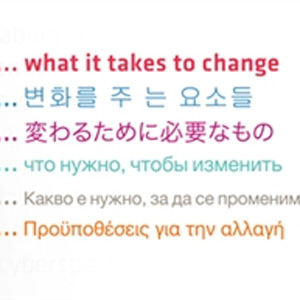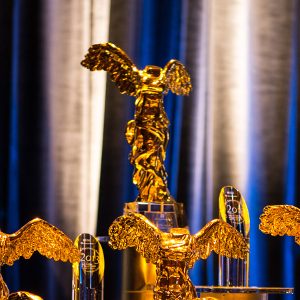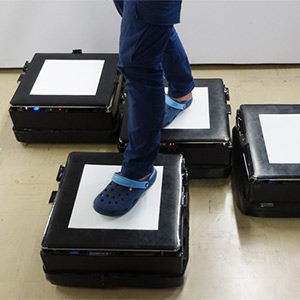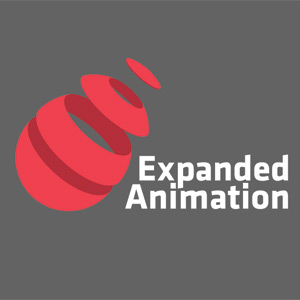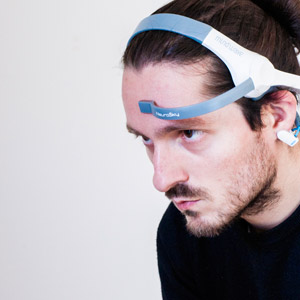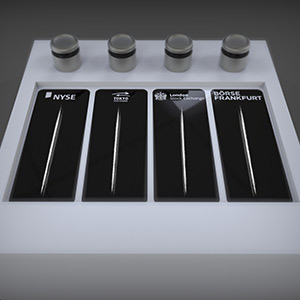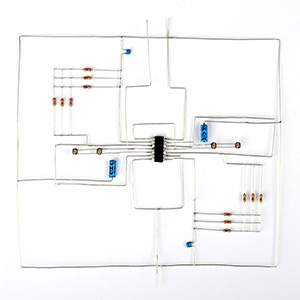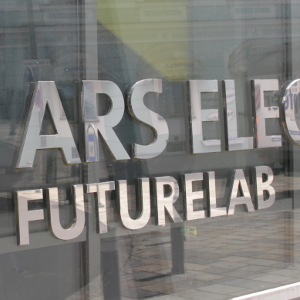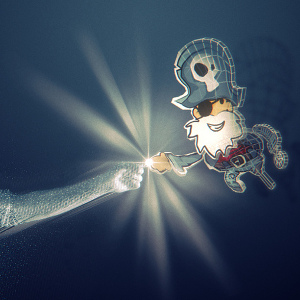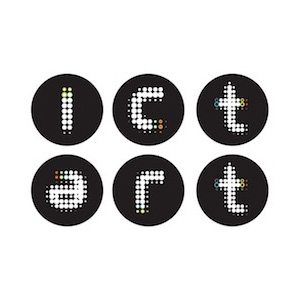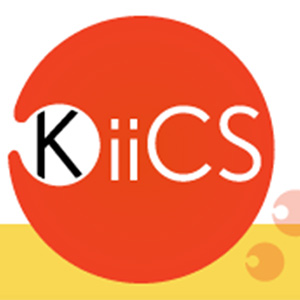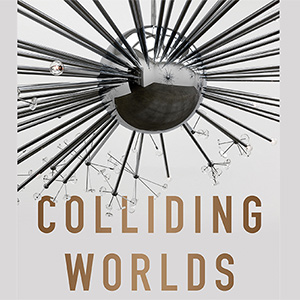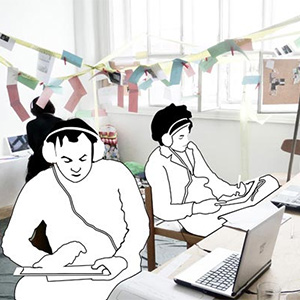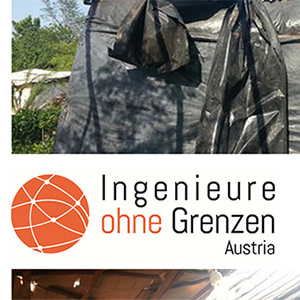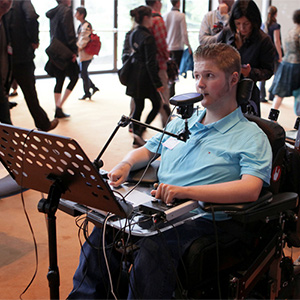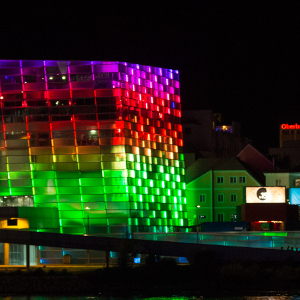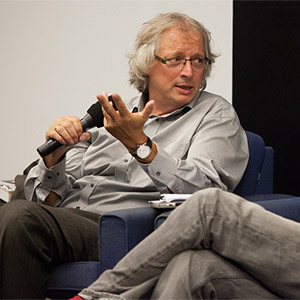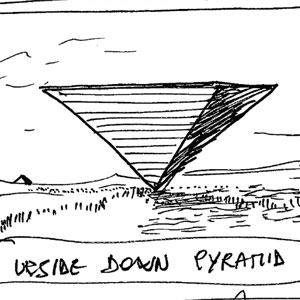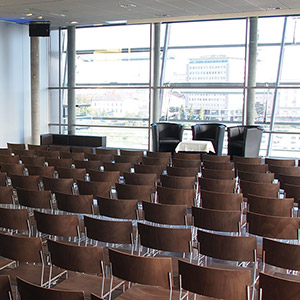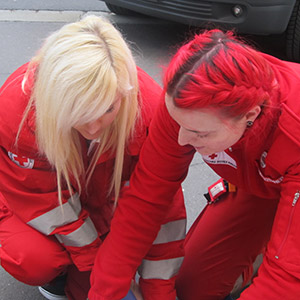The discussion formats have also gotten a major makeover. The annual theme symposium, presentations in conjunction with the Futurelab’s Future Playground conference and some of the talks with Prix Ars Electronica honorees have been reconfigured into a Future Innovators Summit, a conclave of established experts and up-and-coming young entrepreneurs, social activists, technicians and scientists, and, of course, artists and designers. They’re coming together for the purpose of reciprocal inspiration and to exchange ideas and knowhow about this year’s Festival theme.
Personal encounters with 2014 Prix Ars Electronica prizewinners are made possible by the Prix Forums on Saturday, September 6th at the OK Center for Contemporary Art.
Future Playground is a showcase of notable new developments by the Ars Electronica Futurelab and Ars Electronica Solutions. Visitors are invited use this perusal of what’s happening at the nexus of art, technology and society as an opportunity to give some thought to this year’s festival theme, change, at an interesting array of interactive exhibits, live performances, speeches and round-table discussions. The substantive spectrum includes research on human-robot relations, participative stage-based works, innovative interfaces, unconventional methods of conveying content, and presentations in the area of digital entertainment technologies.
A specialized gathering of leading lights is entitled Expanded Animation. At the LENTOS Art Museum, experts will scrutinize current trends and future developments in digital art.
What does it take to change? This question will occupy the focal point at the Future Innovators Summit staged jointly by Ars Electronica and Hakuhodo. This conclave is the result of a radical makeover of the Festival’s traditional theme symposium, and thus clearly a case of intentionally induced change!
Prix Forums are great opportunities to meet Prix Ars Electronica prizewinners and get personally acquainted with their work.
Device Art deploys novel materials and techniques to create high-tech appliances featuring sophisticated, cool design. The objects’ inherent convergence of technology, art and design calls into questions conventional paradigms operational in the art world.
What used to be clearly defined boundaries separating the various types and genres of digital animation have become blurred. Expansionist tendencies are unmistakable. The 2nd Expanded Animation symposium is providing an international community of students, instructors, artists and theoreticians with an opportunity to convene and exchange ideas about increasingly permeable borders, peripheral areas, current trends and future developments in the field of computer animation.
The Interface Cultures program has a strong international network of universities and institutions. Students are encouraged to spend time at one of Interface Culture’s partner universities in Europe, South America, Asia or Australia. Over the years the network has grown and many international guests from Japan, Europe and South America come to the Interface Cultures department at the Arts University Linz to carry out research and stay for anything from a month up to a whole year.
At the Alumni Meeting Interface Cultures’ graduates speak briefly about themselves and their current work place and job, revealing how their studies influenced their professional careers.
In keeping with Interface Culture’s openness and constant search for new topics and culturally relevant issues, Bring Your Own Art is an open invitation to artists, international partner university students, guest researchers and any potential students who are interested in the program to bring along their own art projects in the form of short presentations.
The Ars Electronica Residency Network offers a highly diversified subset of individual programs that target a wide array of artists.
For the second time (after the initial collaboration in 2013), this year’s festival features the results of an Ars Electronica Futurelab Academy held at Queensland University of Technology (AU).
CADET, initiated jointly by the University of Applied Sciences Salzburg and Ars Electronica Futurelab, the Center for Advances in Digital Entertainment Technologies, is working to increase immersion, participation and interaction in the digital entertainment and communication.
What is the outcome if work on novel ICT – Information and Communication Technologies –is linked with artistic expression? This is the question asked by the study ICT Art Connect funded by the European Commission (DG CONNECT) and the question raised during the roundtable. Following a trend towards convergence of all domains of knowledge, the Arts are gaining prominence as a catalyst for radical transformations of R&D&I practices.
KiiCS–Knowledge Incubation in Innovation and Creation is produced jointly by Kapelica Gallery in Ljubljana, Slovenia, the Science Gallery in Dublin and the Waag Society in Amsterdam.
Butterflies created by designers, plastic surgery as the subject of a theatrical performance, a glow-in-the-dark rabbit, and data sculptures - the interplay of art and science has reached a new dimension in which it has become a discipline in its own right. Artsci is what renowned author, journalist, historian and philosopher Arthur I. Miller calls it.
Knowing how the mind creates ideas is not enough. We need to train our minds and create a culture that supports the creative potential. Elisabeth Samhaber, a sociologist, innovation consultant, and Johanna Gradauer from ideeomat explain how to put this knowledge into practice, how to design activities and materials to unleash the creative capabilities in each person, so everyone – extrovert or introvert, analytical or creative – brings their best to the innovation process.
The mission of a project named LeNi - an acronym of Leòn, Nicaragua - is to construct housing fit for human beings to accommodate single mothers and their children in the slums of Leòn. Their current quarters made of logs and plastic tarps provide hardly any protection during the rainy season. Cooking, toilet and bathing facilities are usually under a makeshift roof outdoors.
Interested festivalgoers have long been tracking the progress of the OHMI project, which is making another appearance at the Ars Electronica Festival. Its main goal - fostering development of a one handed musical instrument for physically impaired musicians - has long since gotten underway.
Der Wandel des Lebensraums Stadt steht beim Connecting-Cities-Schwerpunktthema The Participatory City im Mittelpunkt des Interesses. Gefragt waren künstlerische Arbeiten im öffentlichen Raum, die neue Möglichkeiten der Interaktion von Stadt und StädterInnen auftun und ein kritisches Bewusstsein für die laufenden urbanen Veränderungsprozesse schaffen sollen.
Why do you make films? The Academy of Austrian Film will pose a presumably simple question at the forum staged in conjunction with u19 – CREATE YOUR WORLD this year. The tantalizing nature of the query is further heightened by the composition of the panel whose members will be responding from their very diverse perspectives.
C-School is the Diotima Society's answer to the emerging need of a dynamic knowledge gate. The C-School is an educational path, new and timeless, bridging the heritage of the classic Scholè with the oncoming era of shifting paradigms, its complexity and unexpected consequences. It is a permanent open-lab, consistent with a new idea of wealth, where processes are generating meaning, more than producing needs and goods.
What’s necessary for innovation to occur? What are the preconditions for social renewal? These issues aren’t just the concern of the 2014 Ars Electronica Festival; scholars and practitioners in the field of education are working on them too. The pedagogical answers are many and varied. One especially promising one is inclusion.
Divided up into five groups, young people take a close-up look at social reality. What’s the deeper meaning of the terms trust, humanity, social innovation and resilience? These concepts occupied the attention of Red Cross founder Henri Dunant, and are still deserving of consideration today.


